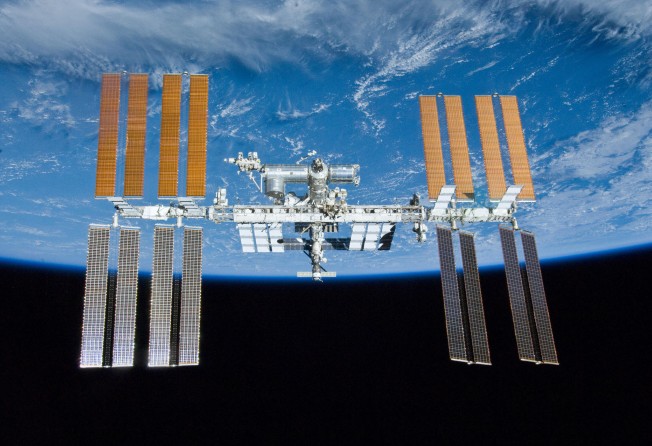Nasa plays down threat to space station after Russian threat to end co-operation
Operations continue as normal, US agency says after Russia signals end of ISS co-operation and GPS ban in retaliation for Ukraine sanctions

Nasa is playing down a Russian statement about an early end to co-operation on the International Space Station because of US sanctions on Moscow.
Deputy Prime Minister Dmitry Rogozin said Moscow would reject a US request to prolong the orbiting station's use beyond 2020. It also would bar Washington from using Russian-made rocket engines to launch military satellites.
Moscow took the action, which also includes suspending operation of GPS satellite navigation system sites on its territory, in response to US plans to deny export licences for hi-tech items that could help Russia's military.
"We are very concerned about continuing to develop hi-tech projects with such an unreliable partner as the United States, which politicises everything," Rogozin said.
Washington wants to keep the US$100 billion, 15-nation space station project in use until at least 2024, four years beyond the previous target.
Nasa said it had not yet received any official notification from Russia on changes in space cooperation. "Space cooperation has been a hallmark of US-Russia relations, including during the height of the cold war, and most notably, in the past 13 consecutive years of continuous human presence on board the International Space Station," it said.
"Ongoing operations on the ISS continue on a normal basis."
Moscow's plan to part ways on a project that was supposed to end the "space race" underlines how relations between the former cold war rivals have deteriorated since Russia annexed Ukraine's Crimea in March.
Since the end of the US Space Shuttle project, Russian Soyuz spacecraft have been the only way astronauts can get to the space station, whose crews include mostly Americans and Russians, as well as visitors from other countries.
Rogozin said US plans to deny export licences for some hi-tech items were a blow to Russian industry.
"These sanctions are out of place and inappropriate," he said. "We have enough of our own problems."
Moscow's response would affect deliveries of NK-33 and RD-180 rocket engines, Rogozin said. "We are ready to deliver these engines but on one condition that they will not be used to launch military satellites," he said.
RD-180 engines are used to boost Atlas 5 rockets manufactured by United Launch Alliance, a partnership of Lockheed Martin and Boeing that holds a virtual monopoly on launching US military satellites.
The alliance said it was not yet aware of any restrictions and hoped talks would resolve any issues that arose.
It said it could use other launch vehicles and had a two-year supply of engines to smooth over any transition.
Rogozin said Moscow was planning "strategic changes" in its space industry after 2020 and aimed to use money and "intellectual resources" that now went to the space station for "a project with more prospects".
He suggested Russia could use the station without the US, saying: "The Russian segment can exist independently from the American one. The US one cannot."
Nasa is working with companies to develop space taxis with the goal of restoring US transport to the station by 2017. It now pays Russia more than US$60 million per person to fly its astronauts up.
Rogozin said Russia would suspend the operation of 11 GPS sites on its territory from next month and seek talks with Washington on opening similar sites in the US for Russia's own satellite navigation system, Glonass.
He threatened the permanent closure of the GPS sites in Russia if there was no agreement to allow Glonass into the US by September.
Additional reporting by Associated Press